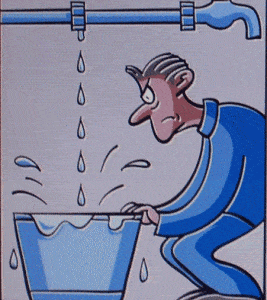Houses that will sit empty through the winter need attention to avoid frozen pipes, reports Long Island American Water, which is part of American Water, the largest investor-owned U.S. water and waste water utility company.
The company offers these tips for ensuring that pipes don’t burst:
· Search for pipes that are not insulated, or that pass through unheated spaces such as crawl spaces, basements, or garages. Wrap them with pre-molded foam rubber sleeves or fiberglass insulation.
· Wrap really vulnerable pipes with electric heating tape with a built-in thermostat that only turns heat on when needed.
· Seal cracks and holes in outside walls and foundations with caulking to keep cold wind from pipes. Look for areas where cable TV or phone lines enter the house, to be sure holes are tightly sealed.
· If hot-water radiators heat the home, bleed the valves by opening them slightly. Close them when water appears.
· Before really cold weather sets in, make certain that the water to outdoor hose bibs is shut off inside the house and the lines are drained.
· Drain any hoses and air conditioner pipes.
· Wrap the water heater or turn it off.
· Make sure gutters and downspouts have been cleaned to remove debris that could freeze and cause clogs during cold weather.
· Know where the main water shut-off valve is located in case it needs to be shut off during an emergency.
